The Big Picture –
By Glynn Wilson –
WASHINGTON, D.C. — A person with character may pickup a few nicknames in a life. A famous Baptist preacher once called me “Cowboy,” and it stuck.
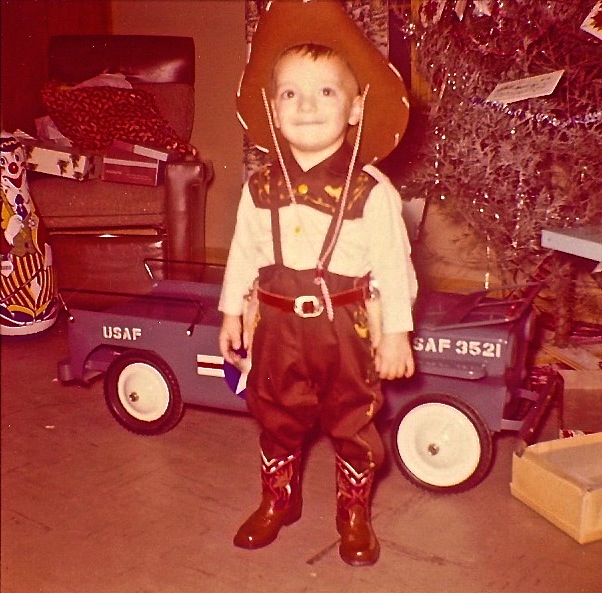
My mom was a fan of Roy Rogers and Elvis. This is how she dressed me on Christmas in 1960, when I was 3 years old: Photo by Eschol Wilson, my dad.
That worked for a couple of decades, and I was locally famous as the only drummer to ever wear a cowboy hat — until Joe Saylor came along in Jon Batiste’s band on “Late Night with Stephen Colbert.”
“You were Cowboy before Cowboy was cool,” a so-so musician and decent sound engineer once said to me in a bar he owned outside Birmingham, Alabama. His name was Bob Montgomery. He ran sound for the Alabama Power Band, which changed its name to the Crimson Tide Band when it signed a two-record deal with Capitol Records, then later had his own band and owned J.T. Roberts Lounge in Trussville.
Later on, after I cut my rock and roll hair and traded the cowboy hat for a press hat, and later started opining about the future of democracy and the planet in Sunday columns, a friend who knew me as Cowboy starting calling me “reverend.”
I suppose at times I may sound a little preachy. Sorry about that. That’s what passion does to a person, if you know what I mean.
And let’s face it. There’s no such thing as real literary, interpretive American journalism or commentary worth reading without it. Everything else is hackery, rewriting the press releases.
I’m planning on revealing some times in my life when some hopes went unfulfilled, when dreams were shattered.
For today’s Sunday school lesson, however, I would like to set the stage by quoting a brilliant, well read man, a true genius in my book. Martin Luther King, Jr.
“Our sermon today brings us face to face with one of the most persistent realities in human experience. Very few people are privileged to live life with all of their dreams realized and all of their hopes fulfilled. Who here this morning has not had to face the agony of blasted hopes and shattered dreams?”
That’s the lede to a sermon King preached on or about April 5, 1959 at the Dexter Avenue Baptist Church in Montgomery, Alabama — before all hell broke loose.
It was entitled “Unfulfilled Hopes,” and he would later do other versions, adding “Shattered Dreams.”
In his papers, the file folder containing the outline for this speech contained his personal copy of Frederick Meek’s homily “Strength in Adversity,” a sermon delivered in the Old South Church in Boston on April 19, 1953.
Now I can relate to this message, even if I’m not much of a church going man, or one who does much praying. Not much at all, in fact, since I long ago chose science over religion as the more valuable field of endeaver to follow and pursue.
Since Charles Darwin published On the Origin of Species by Means of Natural Selection in 1859, it’s been a little hard to do both. Although some people still try.
Charles Darwin’s On the Origin of Species Turns 150
I do have regrets in life, things that went wrong along the way. Sometimes but not always these unfulfilled hopes and shattered dreams were things I could control, but more often upon reflection it was not my fault. The world is full of selfish assholes who only care about themselves and not the plight of others. But I will get to all that later in another part to this series. For today let’s just focus on the message.
One of the things I love about King’s speeches is that they tend to contain a review of the literature from King’s reading. Now most Baptist preachers in my experience stick to the one book.
Not Dr. King.
He does lead this one off with one of the best examples of this problem in the life of the Apostle Paul. How he dreamed of visiting his new Christian friends in Spain, but ending up dying in a prison cell instead in Rome.
Ouch. That’s a heavy price to pay for passion.
He also mentions Jesus in the Garden of Gethsemane praying that the cup would be removed from him.
“But he has to drink it with all of its bitterness and all of its pain,” King says.
He doesn’t stop with Biblical examples. He mentions the philosopher Schopenhauer, who said life is nothing but a tragic comedy played over and over again with slight changes in costume and scenery. He cites Shakespeare’s Macbeth, who concludes life is all “sound and fury signifying nothing.”
He quotes the poet Paul Laurence Dunbar.
A crust of bread and a corner to sleep in,
A minute to smile and an hour to weep in,
A pint of joy to a peck of trouble,
And never a laugh that the moans come double;
And that is life!
He cites John Milton.
“We read Paradise Lost and Paradise Regained with great joy and great appreciation, but we appreciate it even more when we discover that he wrote it when he was blind,” King points out.
He cites Longfellow translating Dante.
“We think of the greatness, this poet translating the works of another great poet. Then, we appreciate Longfellow even more when even we discover that a few days before he started translating Dante, the dress of his wife accidentally caught fire. And he tried desperately to put the fire out, but he couldn’t put it out. It injured her to the point that she died a few days later.”
He names Helen Keller, who we appreciate more when we discover “here is a person … thrown into a little cell of blindness and deafness, can’t see, can’t hear, but yet in spite of that she wouldn’t be stopped.”
He looked back over the dark days of slavery, and chastised those who would still try to romanticize about the “beauty of slavery,” thinking back to those “good old days.”
“Slavery was a tragic thing,” King said. “All that the Negro had to look forward to was rows of cotton, sizzling sun, the whip of the boss, and the barking of bloodhounds.”
“It is tragic to be cut off from some things,” he said, “but there is nothing more tragic than to be cut off from your language, cut off from your family, cut off from your roots.”
But they had something left in them, he said.
“The little preacher who didn’t know his English grammar, who had never heard of Plato or Aristotle, who could never understand Einstein’s theory of relativity, he’d look at them and say … ‘Now, you ain’t no nigger. You ain’t no slave but you God’s children’.”
These people, he said, “because of their creative, dynamic will, gave to this world something to keep it going, and they have given to this world contributions that the world will always have to be proud of.”
He cites the spiritual, a gift to America as an original and creative music. He names Marian Anderson, Roland Hayes, and Paul Robeson, “to sing until the very fiber of men’s souls is shaken.”
He names Ralph Bunche “to stand as one of the great diplomats of the world.” He names Booker T. Washington and W. E. B. Du Bois, as “great educators.” He names Charles Drew, “to save us with blood plasma all over this world.” He names E. Franklin Frazier, “to interpret sociologically the trends of our age.” He names Countee Cullen, and Langston Hughes, “to write poetry so that we can identify ourselves with reality through poetry.”
“Out of these black men and these black women came something that keeps the generations going,” he preached.
So what do most people do when they face the shattering of their dreams, and unfulfilled hopes?
Some grow mean, and try to blame everything and everybody else, “to atone for one’s predicament.”
“All of their frustration are distilled into a core of bitterness that expresses itself in hardness of attitude and a total mercilessness,” he said. “They take out their disappointment on someone else.”
He says some become cruel to their mate, or inhumane to children. They grow bitter or cynical. Some withdraw from involvement in the world, full of “silent hate.”
But all the people he names, including those who somehow survived and got past slavery, he says, if they had turned to bitterness or withdrawn they “wouldn’t have come” out of it.
They survived and thrived, he suggests, due to “the exercise of a great and creative will.”
“And whenever a man comes to this point, he brings reality into the very center of his existence, and he brings new meaning and delight in the universe,” King said. “And you know, strangely enough when you come to this point, you don’t worry about suffering. You don’t die because you don’t get to Spain. You come to see that suffering might make you stronger and bring you closer to the Almighty God.”
He then compares it to the life experience of a tree, citing Douglas Malloch’s,“Good Timber” in Be the Best of Whatever You Are.
The tree that never had to fight,
For sun and sky and air and light,
That stood out in the open plain
And always got its share of rain,
Never became a forest king,
But lived and died a scrubby thing.
The man who never had to toil
By mind or hand in life’s turmoil,
But always won his share
Of sky and sun and light and air,
Never became a manly man,
But lived and died as he began.
And never forget,
Good timber does not grow in ease.
The stronger the wind, the tougher the tree.
The farther sky, the greater length.
The rougher the storm, the greater strength.
By sun and wind, by rain and snows,
In tree and men, good timber grows.
Where thickest stand the forest grows
We find the patriarchs of both
And they hold converse with the stars,
Whose broken branches show the scars
Of many winds and much of strife.
This is the common law of life.
I feel it. Don’t you?
So I promised y’all an honest summer, full of stories that heretofore could not have been told. I vow to reveal all before I’m done.
But that’s enough fat to chew on for one Sunday. Come back next week for more.
If you have unfulfilled hopes, or shattered dreams, and you have a story on how you came back from it, feel free to share the stories in the comments, or a guest op-ed.
___
More in Part 2: On Unfulfilled Hopes, Shattered Dreams and Baseball.
___
If you support truth in reporting with no paywall, and fearless writing with no popup ads or sponsored content, consider making a contribution today with GoFundMe or Patreon or PayPal. We just tell it like it is, no sensational clickbait or pretentious BS.


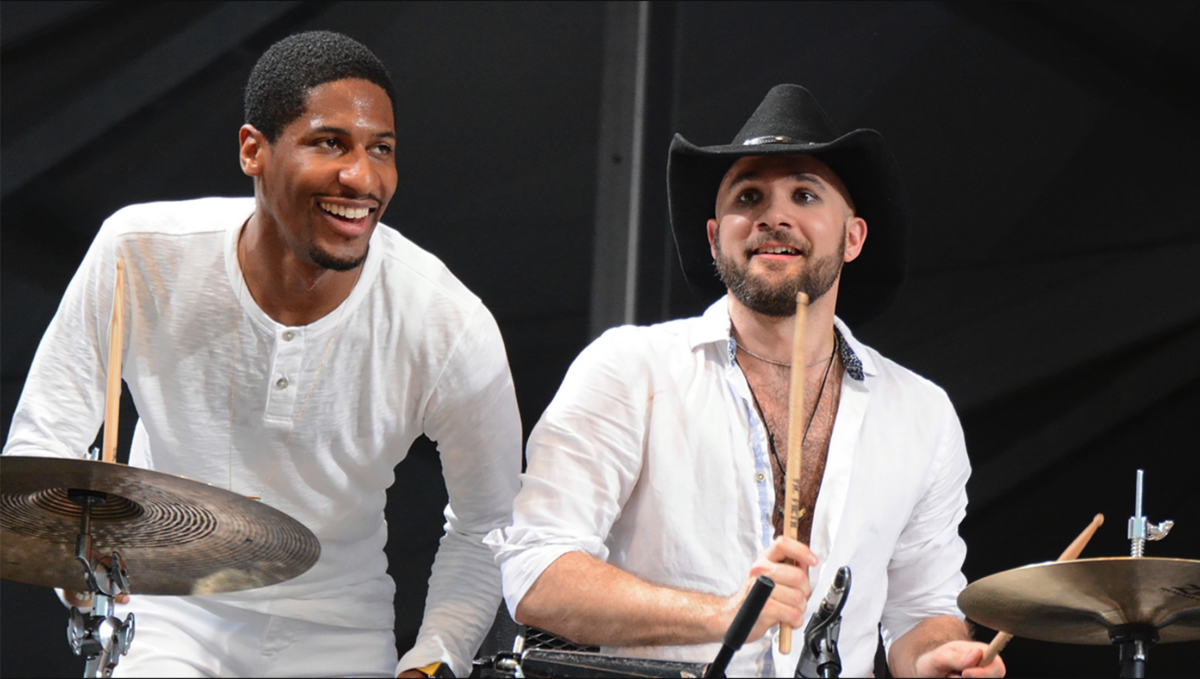
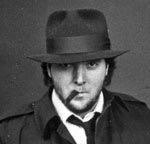
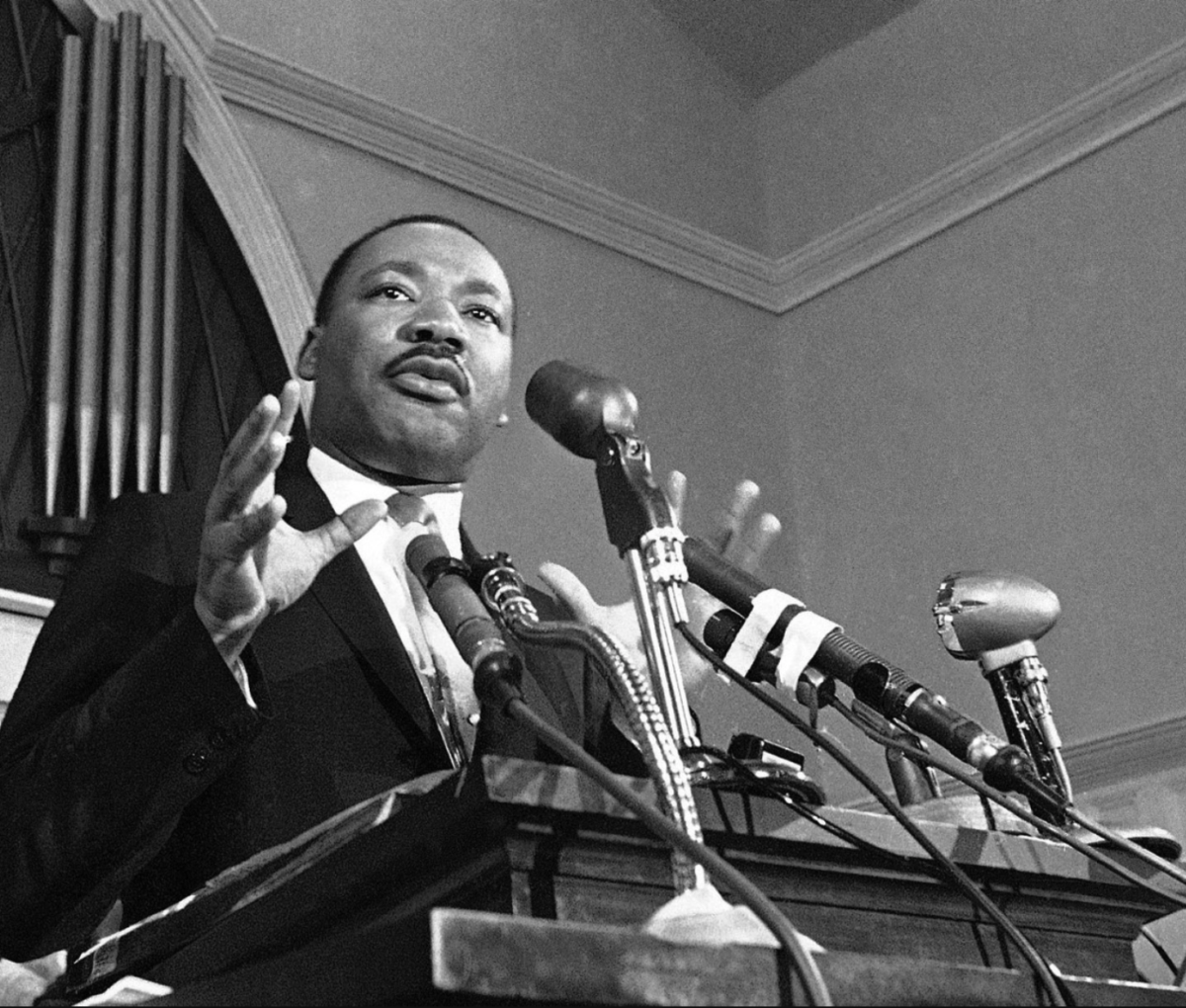
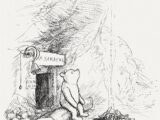




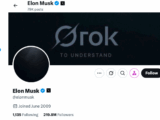






I tried to hit 5 stars, but I fat-fingered it I guess. Sorry for the 4…but once I hit it, it wouldn’t let me change it.
I guess we’ll take whatever stars we can get. Thanks, LOL 🤠